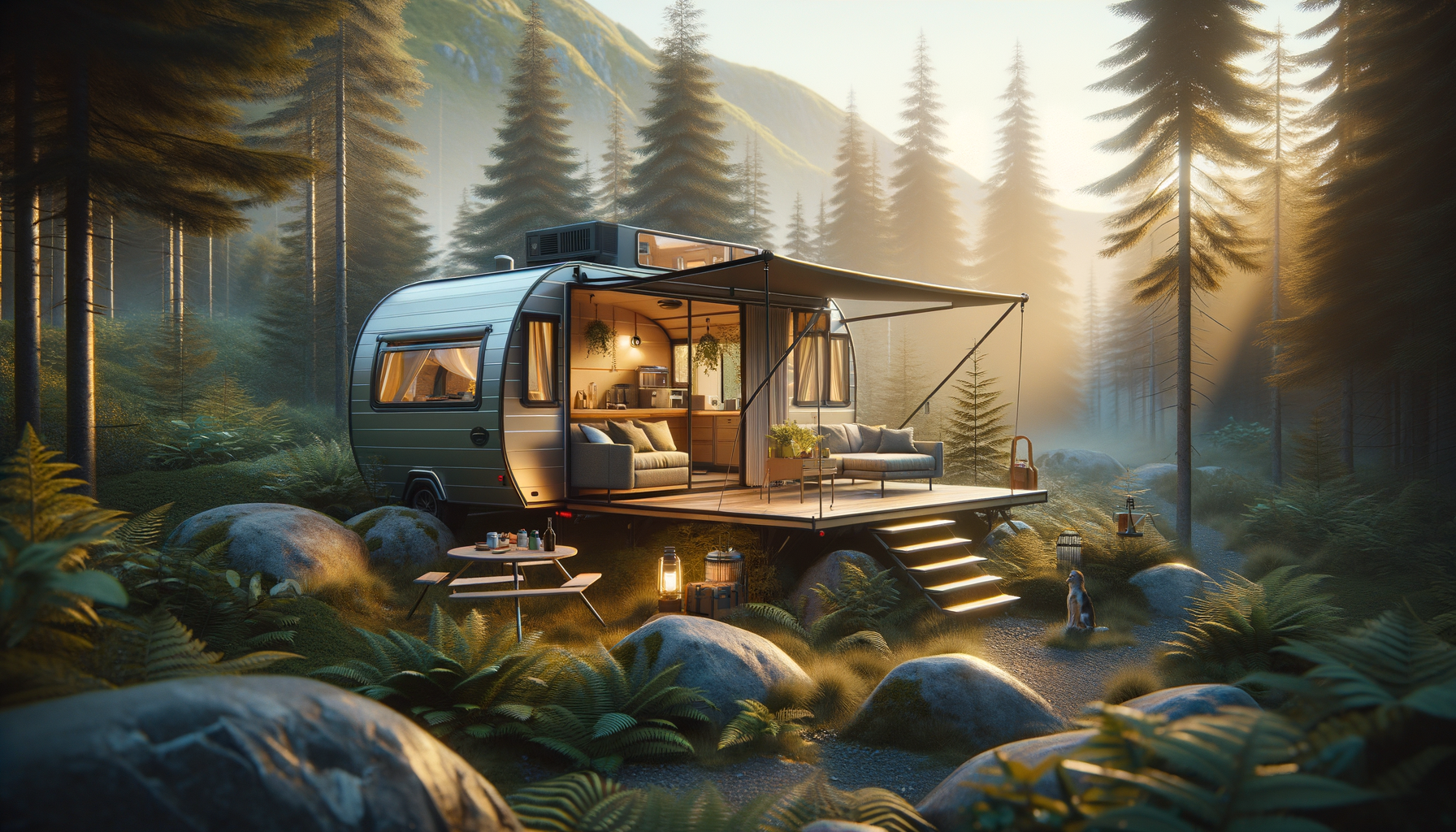
Journey into the Pop-Up Campers Realm: An Exhaustive Study
The Evolution of Pop-Up Campers
Pop-up campers have come a long way since their inception, evolving from simple tent trailers to sophisticated mobile accommodations. Initially designed to provide a lightweight and affordable camping solution, these campers have transformed into versatile units that cater to a wide range of outdoor enthusiasts. The innovation in materials and design has played a significant role in this evolution. Today, pop-up campers feature durable, weather-resistant fabrics, lightweight aluminum frames, and compact yet efficient layouts that maximize space.
One of the most notable advancements is the integration of modern amenities. Many pop-up campers now include features like built-in kitchens, sleeping quarters, and even bathroom facilities. These enhancements have made them a popular choice for families and individuals seeking a more comfortable camping experience without sacrificing the essence of outdoor adventure. The evolution of pop-up campers reflects a broader trend in the camping industry towards more sustainable and user-friendly travel options.
As the demand for eco-friendly travel solutions grows, manufacturers are increasingly focusing on sustainability. This includes using recycled materials, incorporating solar panels for energy efficiency, and designing campers that minimize environmental impact. The evolution of pop-up campers is a testament to the industry’s commitment to innovation and sustainability, making them a compelling choice for modern campers.
Advantages of Pop-Up Campers
Pop-up campers offer a unique blend of benefits that appeal to a diverse range of campers. One of their primary advantages is their compact size and lightweight design, which makes them easy to tow with a variety of vehicles. This accessibility opens up the world of camping to those who may not own large trucks or SUVs, making outdoor adventures more inclusive and accessible.
The affordability of pop-up campers is another significant advantage. Compared to traditional RVs or motorhomes, pop-up campers are a cost-effective option for those looking to enjoy the great outdoors without a substantial financial investment. This affordability does not come at the expense of comfort, as many models offer a surprising array of features and amenities.
Additionally, pop-up campers are known for their versatility. They can be set up in a matter of minutes, allowing campers to quickly transition from travel mode to relaxation mode. Their compact nature also means they can access more remote and off-the-beaten-path locations that larger RVs cannot reach. This flexibility enhances the camping experience, offering a sense of adventure and exploration.
Challenges and Considerations
While pop-up campers offer numerous advantages, they also come with certain challenges and considerations that potential buyers should be aware of. One of the primary concerns is their limited insulation and weather protection compared to hard-sided RVs. This can be a drawback in extreme weather conditions, as pop-up campers may not provide the same level of comfort or safety.
Another consideration is the setup and takedown process. Although pop-up campers are designed for quick assembly, it still requires some effort and time, which may not be ideal for those seeking a more spontaneous travel experience. Additionally, the fabric walls, while lightweight and flexible, may require regular maintenance to ensure longevity and durability.
Storage can also be a challenge for pop-up campers, particularly for those living in urban areas with limited space. Potential owners should consider where they will store the camper when it is not in use, as well as any local regulations or restrictions that may apply. These considerations are important for making an informed decision about whether a pop-up camper is the right choice for one’s camping lifestyle.
Comparing Pop-Up Campers to Other RVs
When comparing pop-up campers to other types of RVs, several key differences and similarities emerge. Pop-up campers are generally more affordable and easier to tow than larger RVs, making them an attractive option for budget-conscious travelers. Their lightweight design also means they have less impact on fuel consumption, which can be a significant advantage for long road trips.
In terms of amenities, pop-up campers offer a more minimalist approach compared to larger RVs, which often come equipped with full kitchens, bathrooms, and entertainment systems. However, this simplicity is part of the appeal for those who prioritize a closer connection to nature and a more authentic camping experience.
On the other hand, larger RVs provide more space and comfort, making them suitable for extended trips or for those who prefer a home-like environment on the road. The choice between a pop-up camper and a larger RV ultimately depends on individual preferences, travel goals, and budget. Each type of RV offers unique advantages and challenges, and understanding these can help potential buyers make an informed decision.
Future Trends in Pop-Up Campers
The future of pop-up campers is likely to be shaped by several emerging trends in the travel and camping industry. One of the most significant trends is the increasing emphasis on sustainability and eco-friendly design. As more consumers seek environmentally responsible travel options, manufacturers are likely to focus on developing pop-up campers that minimize environmental impact through the use of renewable materials and energy-efficient technologies.
Technological advancements are also expected to play a role in the evolution of pop-up campers. Innovations such as smart home integration, enhanced connectivity, and advanced safety features could become standard in future models, offering campers a more convenient and secure experience.
Additionally, the growing popularity of remote work and digital nomadism may influence the design and functionality of pop-up campers. As more people seek flexible living arrangements that allow them to work and travel simultaneously, pop-up campers may be adapted to include workspaces and enhanced connectivity options.
Overall, the future of pop-up campers looks promising, with a focus on innovation, sustainability, and adaptability to meet the changing needs of modern campers.

